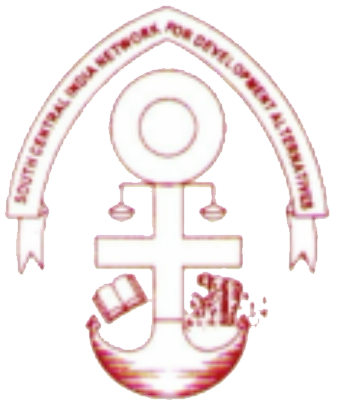About
-
Headquarters
Vellore, Tamil Nadu
-
Since
1994
South Central India Network for Development Alternatives (SCINDeA), is a collaborative network consisting of 14 field-based voluntary organisations lo Read morecated in the South Central region of India. It operates in the Chittoor District of Andhra Pradesh, the Kolar and Ramnagara Districts of Karnataka, and 10 Districts in Tamilnadu. With a history of 20 years in development initiatives, SCINDeA focuses on promoting sustainable development through active people's participation. It prioritizes empowering the most underprivileged and socially excluded sections of society, while also fostering collaboration among members to ensure transparency and accountability. SCINDeA is a registered non-profit organisation under the Tamilnadu Societies Registration Act, as well as with the Ministry of Home Affairs under the Foreign Contribution Regulation Act and the Indian Income Tax Act. The geographical scope of SCINDeA's work extends across three states - Tamilnadu, Andhra Pradesh, and Karnataka - covering 15 districts, 46 blocks, 36 taluks, 206 panchayats, and 491 villages, with a total population of 13,89,751. All the programmes and initiatives of SCINDeA are coordinated through their Secretariat located in Yelagiri Hills, Vellore District, Tamilnadu, in South India.
Demographies Served
Cause Area
Impact
SCINDeA's programmes have impacted 2,324 individuals receiving skill training and 2,147 engaged in income generation activities for livelihood promotion, in the realm of community development and strengthening of federations, 337 village units were formed, enrolling 17,592 members, additionally, 2,153 cadres were developed, and 1,596 issue-based campaigns and 119 advocacy/lobbying programs were conducted, the establishment of 229 Women and Child Atrocity Prevention Committees further contributed to community empowerment, in the area of health and sanitation, 847 toilets were constructed, providing improved sanitation facilities, while 463 families gained access to safe drinking water, finally, SCINDeA's education development program successfully established 21 functional tuition centres, benefiting 1,200 enrolled students.
Programs
-
Livelihood Promotion For Poor Families
SCINDeA collaborates with partner organisations and local communities, including Dalits, fisherfolk, quarry workers, slum dwellers, Adivasis, and small farmers, to uplift their lives. Through sustainable income generation and skill training, SCINDeA improves livelihoods. The organisation also guides youth groups, facilitates career guidance, and promotes self-employment. To maximize impact, the concept of add-on families is encouraged, where initial beneficiaries give back to the community, ensuring programme sustainability. Additionally, SCINDeA provides income-generating activities to deserving households, prioritizing vulnerable groups like widows and those facing hardships.
-
Rights Based Child And Youth Development
SCINDeA focuses on empowering rural and tribal children in their rights-based child and youth development programme. With limited access to quality education, these children, often first-generation learners, face challenges in reaching schools located far away. SCINDeA addresses this by providing awareness of child rights, child protection, and life skills through tuition centres, children's clubs, and summer camps. These initiatives aim to bridge educational gaps and foster holistic development, offering opportunities for growth and empowerment.
-
Community Development And Strengthening Of Federations
In its community development and strengthening of federations programme, SCINDeA addresses the challenges faced by the poor and marginalized sections of society. With limited access to higher education, healthcare, and employment opportunities, these communities often suffer from cultural myths, misconceptions, and gender-based violence. SCINDeA focuses on empowering the community through organizing and linking various sectors with Government schemes and village infrastructure development. It also emphasizes the training of village youth and cadres to effectively advocate for their concerns and needs to local panchayats and state governments. This strategy aims to create sustainable and independent federations that can bring about positive social change and improved livelihoods.
-
Health and Sanitation Programme
In its health and sanitation programme, SCINDeA addresses the significant challenges of unsafe drinking water and poor sanitation prevalent in the south-central region. With a high percentage of people lacking access to hygienic toilets and practising open defecation, it poses health risks and particularly affects the safety of women, young girls, and the elderly. SCINDeA takes a comprehensive approach by educating families about the importance of toilets, constructing them in three phases, and ensuring post-construction maintenance. Additionally, the organisation has installed borewells for 463 families, with ongoing responsibility for maintenance falling on the families and water committees. These efforts contribute to improving overall health and hygiene in the communities served by SCINDeA.
-
Education Development Programme
In its education development programme, SCINDeA, in collaboration with Fincare Community Development Foundation and its partner organisations, establishes and manages 21 tuition centres across Tamil Nadu and Andhra Pradesh in India. Each centre is supervised by a volunteer from the local village and caters to around 30-35 children aged 6-17 years. These tuition centres serve as coaching classes, providing support to first-generation learners in subjects like English, Tamil, science, and math. It also engages the children in extracurricular activities such as singing, dancing, competitions, and sports. Through innovative and interactive teaching methods, the programme aims to motivate the children, identify their skills, and create an inclusive and engaging learning environment.
Impact Metrics
-
Skill Training Provided to Individuals
Program Name
Livelihood promotion for families
Year-wise Metrics- 2014-15 1104
- 2015-16 880
- 2016-17 363
-
Children Enrolled in Coaching Classes
Program Name
Child and Adolescent Development
Year-wise Metrics- 2013-14 3926
- 2014-15 1110
- 2015-16 1110
- 2016-17 1127
M&E
-
Internal, External Assessors
No
Policies
-
Ethics and Transparency Policies
No
-
Formal CEO Oversight & Compensation Policy
No
Political & Religious Declarations
-
On Affiliation if any
No
-
On Deployment Bias if any
No
Registration Details
-
PAN Card
AABTS7289Q
-
Registration ID
274 of 1994
-
VO ID / Darpan ID
TN/2017/0165680
-
FCRA
075900641
-
CSR Registration Number
Not Available
Location
Other Details
-
Type & Sub Type
Non-profit
Society



